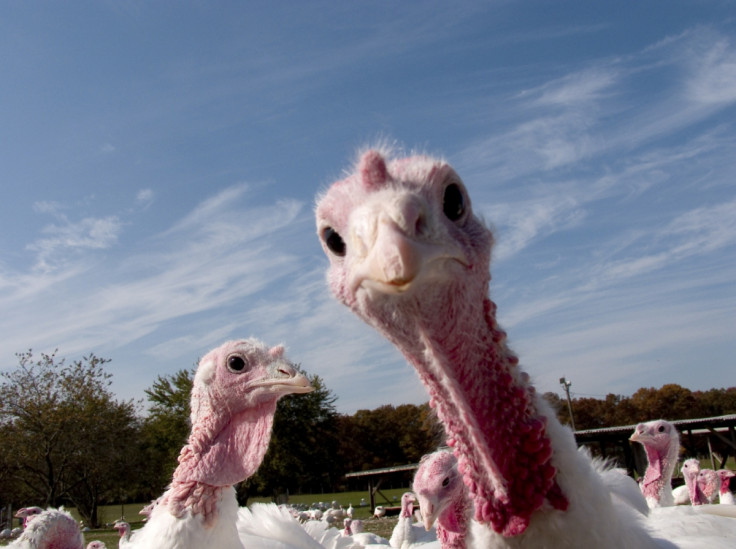If you were angry about Cecil the lion being hunted why put a turkey on your plate?

Earlier this year, the British public came together to condemn Walter Palmer, the American dentist who had gunned down a magnificent lion, Cecil, just so he could add his head to a trophy wall.
It gives me great hope that so many of us are appalled by the idea of killing animals for entertainment. Yet it perplexes me how just a few months later – during this season of goodwill – our compassion still has not been extended to the equally worthy animals whose carcasses are served on the holiday table.
How many families around the UK will slip on their paper hats, pull a Christmas cracker and then tear into the body of a roasted bird, who was slaughtered for nothing more than a fleeting taste of flesh?
In the UK, some 18 million turkeys a year are transported to the abattoir, about 10 million of which at Christmastime. Isn't this also a matter of killing in the name of entertainment – for the palate?
Turkeys, like lions and all other animals, certainly experience pain and fear, and no one in their right mind would take their children to the abattoir for amusement, any more than they'd sit in Walter Palmer's jeep and watch him fire his arrow into Cecil's flanks.
Turkeys, including those slated to be killed for Christmas dinner, can experience affection and many other emotions, given the chance. Rescued birds will sit quietly for hours while their feathers are stroked. Some respond to human conversation with their gobbling, and others will dance along to music.
They're gentle beings but will protect other turkeys with whom they've bonded. Many people don't realise that they are intelligent and, like cats and dogs, playful individuals with unique personalities. They can recognise one another by their chirping and gobbling.
Wild turkeys can fly up to 55mph (and run 18mph), roost in trees (preferably oaks), and remember the topography of an area exceeding 1,000 acres. Young turkeys stay with their mothers for four to five months, and their natural lifespan is 10 years.
Farmed turkeys, on the other hand, can be crammed by the thousands into a shed that provides little light or ventilation. Young birds can have their beaks trimmed to prevent them from pecking at one another as they compete for water and food.
A turkey's diet is very caloric so as to fatten them up quickly to twice the weight of their wild cousins. But unable to support their weight, some collapse. Others die from disease.
At around 20 weeks old (22 weeks recommended by the Poultry Club) the birds are shoved into crates and hauled off to the abattoir, where they can be hung upside down by their legs on a conveyor belt. Some will be run through an electrically charged stun bath that leaves them unconscious before their throats are finally cut.
Hunting is hunting. Whether a beautiful lion is bred and killed in canned hunting, or a common turkey lives a life imprisoned until its early death, these animals want to live freely, with a chance of survival.
It's no secret that we treat animals differently depending on their cuteness, size, and how exotic the appear to us, and whether we traditionally see them as 'pets'. But a young turkey doesn't want to be roasted any more than a puppy.
The nationwide collective dissonance we saw with the horsemeat scandal two years ago, where many were horrified at the prospect of eating horse, but had never bat an eyelid about eating a cow, still seems to be widespread.
Christmas is all about sharing our good fortune with those who are less fortunate. This Christmas, let's take inspiration from Henry James, who said, "Three things in human life are important. The first is to be kind. The second is to be kind. And the third is to be kind", and choose to be kind to all beings. It costs us nothing to leave animals off our plates.
Mimi Bekhechi is Peta UK's director.
© Copyright IBTimes 2024. All rights reserved.






